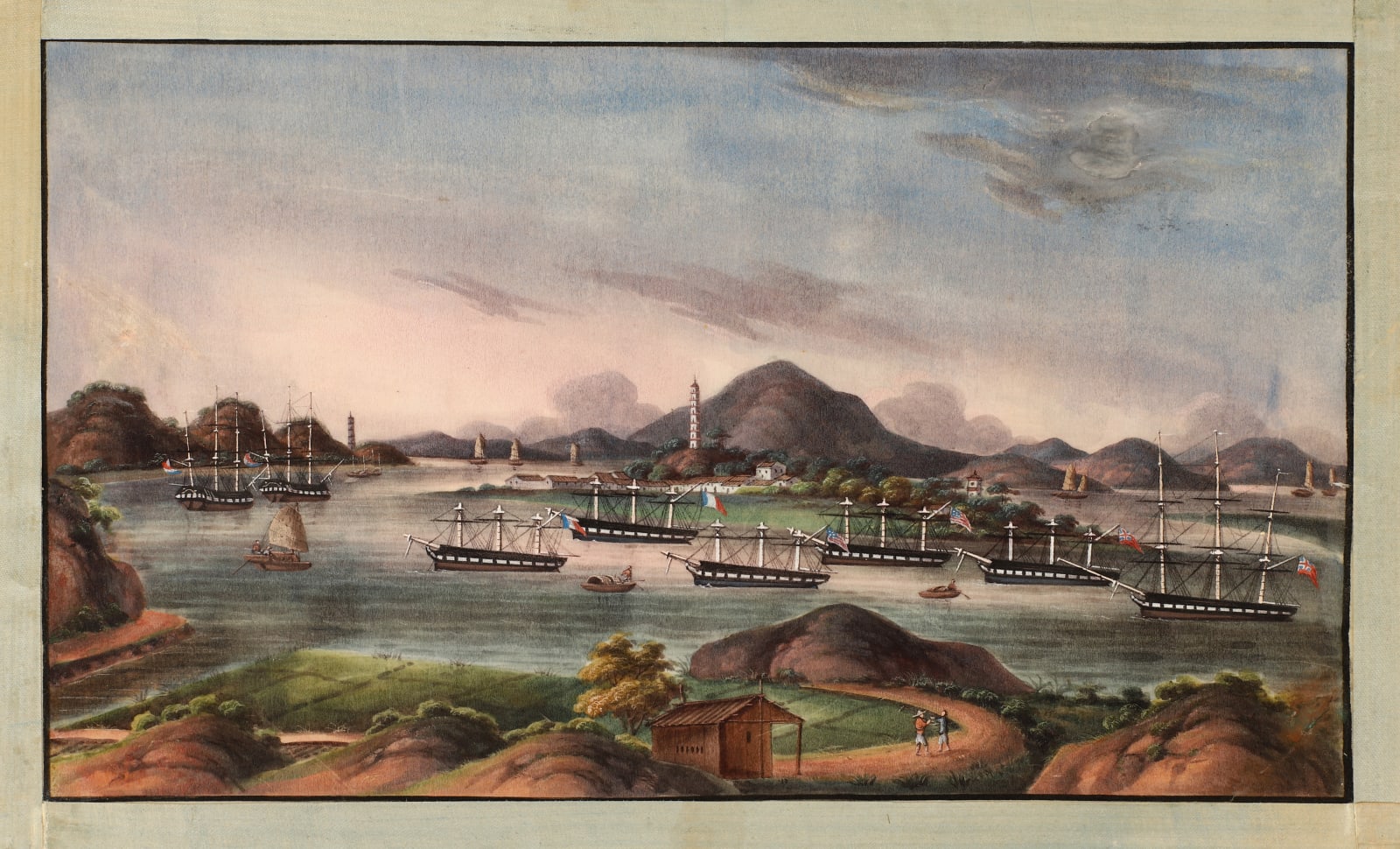China Trade
Macao - Praia Grande, ca. 1830
aguarela s/ papel de arroz / watercolor on rice paper
18 x 30 cm
Não assinado e não datado / Unsigned and undated
D1362a
The Ming emperors had confined Western trade to the town of Macao on the Pearl River estuary, but their successors, the Qing Dynasty would, in the 18th century, expand access to Canton. The Manchu court favoured foreign trade, under very specific conditions, and as long as it was conducted under government regulation. Canton was chosen as the most convenient port, both for the Chinese administration and the foreign traders.
The Chinese had, over the centuries, developed relations with various different peoples and ethnic groups, each having its specific place and role. They referred to alien peoples as “tributaries”, meaning those who came to pay tribute or bring gifts to the emperor, out of gratitude for his benevolent rule. The Westerners who arrived in China to trade, immediately joined these “tributary” ranks. From the Qing officials’ point of view, Westerners were just one other, amongst many groups who admired and sought to profit from their relationship with the flourishing empire.
The Chinese had, over the centuries, developed relations with various different peoples and ethnic groups, each having its specific place and role. They referred to alien peoples as “tributaries”, meaning those who came to pay tribute or bring gifts to the emperor, out of gratitude for his benevolent rule. The Westerners who arrived in China to trade, immediately joined these “tributary” ranks. From the Qing officials’ point of view, Westerners were just one other, amongst many groups who admired and sought to profit from their relationship with the flourishing empire.
Provenance
Gonçalo Silva, Espanha.Join our mailing list
* denotes required fields
We will process the personal data you have supplied in accordance with our privacy policy (available on request). You can unsubscribe or change your preferences at any time by clicking the link in our emails.
